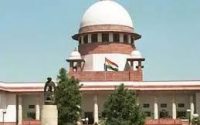$100 Website Offer
Get your personal website + domain for just $100.
Limited Time Offer!
Claim Your Website NowSupreme Court to continue hearing right to privacy case today
Source – livemint.com
New Delhi: With the Centre set to begin its defence against the constitutionality of the right to privacy on Wednesday, the Supreme Court awaits a fresh round of arguments surrounding privacy concerns.
Opposition arguments are likely to be led by new attorney general K.K. Venugopal, who brings to the table more than five decades of legal expertise and knowledge in the field of constitutional law.
There is much to be seen on what the Centre has to say against privacy in addition to its argument it has maintained over the last two years—that privacy is not a fundamental right and operates as a common law right in India.
Former attorney general Mukul Rohatgi had told the apex court in 2015 that Indian citizens don’t have a fundamental right to privacy under the Indian Constitution—an argument he repeated subsequently.
A nine-judge Constitution bench will decide whether Indian citizens have the right to privacy under the Constitution—a question that cropped up in the context of legal challenges to Aadhaar. The bench was set up on the direction of another five-judge constitution bench on 18 July to address the limited question and a total of 22 cases challenging various aspects of Aadhaar are being heard by the court.
In arguments that lasted two consecutive days, several counsels appearing for petitioners, including Shyam Divan, Gopal Subramanium, Arvind Datar, Anand Grover, Meenakshi Arora and Sajan Poovayya, put forth reasons on why the right to privacy should be elevated to form part of the fundamental rights guaranteed under the Constitution. They concluded their arguments for right to privacy on 21 July.
The main argument revolved around the inter link between the principles of liberty, dignity and privacy—both of which are inherent in the Preamble and the Constitution. In this regard, chief justice J.S. Khehar said, “Between liberty and privacy, there is a step of dignity. Dignity flows from liberty and privacy from dignity.”
Gopal Subramanium went on to explain how the prevailing fundamental rights guaranteed under articles 14 (equality before law), 19 (right to freedom) and 21 (right to life and personal liberty) of the Constitution could only be exercised through liberty and freedom of choice.
While considering the nature, scope and contours of the right, the court addressed important questions such as what the right could mean, situations it would be applicable in and its nexus with technology and data protection.
Justice D.Y. Chandrachud even sought to expand the dialogue into the realm of identity and questioned if the right to a person’s identity formed a part of privacy.
The court also discussed in detail the applicability of two precedents through which the discourse on a privacy law has until now developed in the country.
The first, a case dating back to 1954, relates to the search and seizure of documents by the police. A majority ruling in the case held that the right to privacy was not a fundamental right under the Constitution and that police action amounted to “temporary interference for which statutory recognition was unnecessary”.
In the second case, which involved state surveillance, the court ruled in 1962 that “privacy was not a guaranteed constitutional right”. It, however, held that Article 21 (right to life) was the repository of residuary personal rights and recognized the common law right to privacy.
Both these cases were collectively sought to be overruled in the light of fresh precedents and developments.
Once the privacy question is settled by the nine-judge Constitution bench, the remaining issues related to Aadhaar will be heard by a smaller bench.



